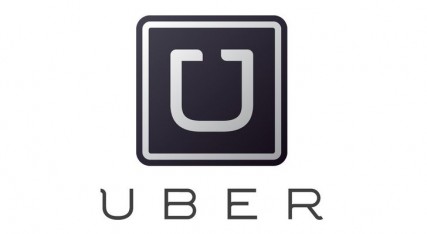
This article was originally published Apr. 25, 2016. The CBJ is revisiting some of the biggest stories from the last 20 years, in celebration of our anniversary.
Drivers with the ridesharing company Uber could start operating in Iowa City as early as this week following a change to the city’s transportation policy, despite criticism from local cab drivers and at least one council member.
After more than a year of discussion between city staff and San Francisco-based Uber, the council cast votes April 19 to officially revise the city’s transportation regulations. The changes were approved 6-1, with newly elected Council member Pauline Taylor casting the sole ‘no’ vote.
“I have seen it all along as Uber trying to bully the city council into writing the rules the way they want them to be written,” Ms. Taylor said.
She said Uber has been welcome to operate in the city for at least a year. In February 2015, the council approved new regulations for both taxis and ridesharing services such as Uber, now referred to in city code as transportation network companies (TNCs). Like Uber’s rival, Lyft, TNCs require passengers to use a smartphone to request rides, which are provided by drivers who use their personal cars.
Leor Reef, an Uber communications associate, said Iowa City will join Des Moines, Cedar Rapids and the Quad Cities as places in the state where the company operates, but declined to estimate when service would begin.
“We’re gearing up for launch right now,” Mr. Reef said.
Among the city regulations implemented last year was a requirement that drivers who work with web-based services such as Uber have their registration information on file with the city. Uber representatives said that would have resulted in service operators being “poached” by competing businesses, and the company later issued a statement saying Uber would not come to Iowa City.
This month, the council changed several of those policies, which included dropping a requirement that the Iowa City Police Department do background checks on TNC drivers; the city now requires those checks to be conducted by a third-party. The changes also eliminated a requirement that TNC drivers have a city-issued identification card.
“Those were put in place by the previous council, and Uber refused to follow them,” Ms. Taylor said. “I saw that as bullying, and didn’t think that was a good practice in getting companies to write their own rules and regulations.”
Per the changes, cars working for a TNC will also no longer be required to have a city-issued decal on the car identifying its TNC status. Assistant City Manager Simon Andrew said that measure was originally intended to increase public safety.
However, further discussions with Uber staff convinced the city the labels could lead to passengers hailing rides off the street. If that happens, Mr. Andrew said, Uber would not have records of the trip in the case of an investigation by law enforcement; it could also increase the potential for off-the-books payment.
Iowa City Police said that in 2014, the department spent more than 200 hours investigating three sexual assaults tied to taxis due to a lack of adequate driver records, which prompted the initial demand for increased access to such records.
“It was something that seemed like it was the best framework at the time, but as we’ve learned more about the industry, it became more detrimental to public safety concerns than not having a decal,” Mr. Andrew said.
Per the revised regulations, TNCs will be required to purchase a $1,000 annual license to operate in the city. Mr. Andrew said that amount is intended to recoup administrative hours spent managing TNC records.
Taxi impacts
Roger Bradley, manager of Yellow Cab of Iowa City, said the introduction of Uber adds another competitor to the area – a market that presently has eight taxi companies, but had as many as 16 as recently as two years ago.
“So the impact is another company in the market,” he said. “Whether or not they’re going to have the same kinds of services, or the things that they tout [like] cheaper prices, better service – that remains to be seen.”
Mr. Bradley took issue with multiple aspects of the city’s transit rules as they apply to taxi companies, including a requirement that cab companies maintain a brick-and-mortar location in the city where they operate.
Eliminating the need for cab companies to maintain those offices is one of several reforms contained in a proposal approved by state lawmakers this month.
The bill, House File 2414, is largely aimed at providing state-level regulation of TNCs in order to alleviate the need for local ordinances. In addition to banning cities from requiring physical offices within cab companies’ territories, the bill would narrow the criteria cities can use to disqualify a cab driver, and would regulate the types of auto insurance they can use.
Absent from the bill was a measure to allow cab companies to better compete with Uber’s “surge pricing,” wherein mileage rates spike during peak usage periods. Presently, cab companies operating in Iowa City, for example, must formally notify the city of any rate changes and have their vehicles’ meters inspected to verify the updated programming.
“That was not addressed at all, not with taxi cabs,” Mr. Bradley said of the legislation, which as of this publication was waiting for Gov. Terry Branstad’s signature. “I don’t see the difference if the [pricing] information is on the screen of your cell phone, or if the information is on your dashboard. The information can still be read.”
Mr. Andrew said the city is open to considering regulatory changes to accommodate some form of dynamic pricing for cabs, such as allowing increased rates during University of Iowa football game days.
Mr. Bradley said the dynamic pricing issue was raised at a meeting between city representatives and local taxi operators on March 31, and is likely to be discussed again in the coming weeks.
“That’s the purpose of those meeting – to get feedback from [cab operators] about what would impact their business in terms of how we can make regulation of traditional taxi cab companies more consistent with transportation network companies,” Mr. Andrew said.




